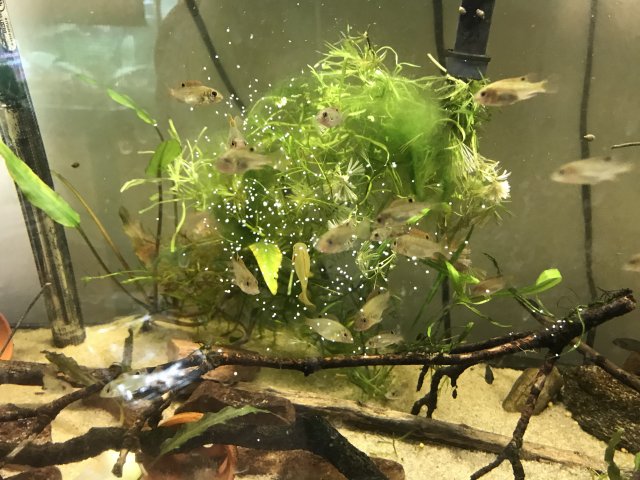captmicha
Members
Chicken eggs are highly biologically available, so I think it probably holds true to most, if not all eggs since it has to sustain all the embryo's needs.
They make a great small food for most fish, and also good for larger fish, depending on how you prepare them. Especially for fry, though not newborns. It's a good grow out food.
You can find caviar but I'd probably go with salt free.
You can get more variety if you visit international grocery stores, and roe sacks as well as caviar.
For larger fish, don't rinse under a strong current. And chop the roe sacks into bite sized pieces. They're sticky this way and tend to stay clumped together.
For smaller fish, put the caviar or roe sacks in a fine mesh net and rinse under strong current. You'll have seperated eggs with little clumping. The roe sacks tend to foam like crazy, so once you'll rinsed it for a while, remove them and rinse just the eggs.
Only use cold water, or you'll cook them.
You can store them in the freezer.
Even my most picky fish love them.

They make a great small food for most fish, and also good for larger fish, depending on how you prepare them. Especially for fry, though not newborns. It's a good grow out food.
You can find caviar but I'd probably go with salt free.
You can get more variety if you visit international grocery stores, and roe sacks as well as caviar.
For larger fish, don't rinse under a strong current. And chop the roe sacks into bite sized pieces. They're sticky this way and tend to stay clumped together.
For smaller fish, put the caviar or roe sacks in a fine mesh net and rinse under strong current. You'll have seperated eggs with little clumping. The roe sacks tend to foam like crazy, so once you'll rinsed it for a while, remove them and rinse just the eggs.
Only use cold water, or you'll cook them.
You can store them in the freezer.
Even my most picky fish love them.


